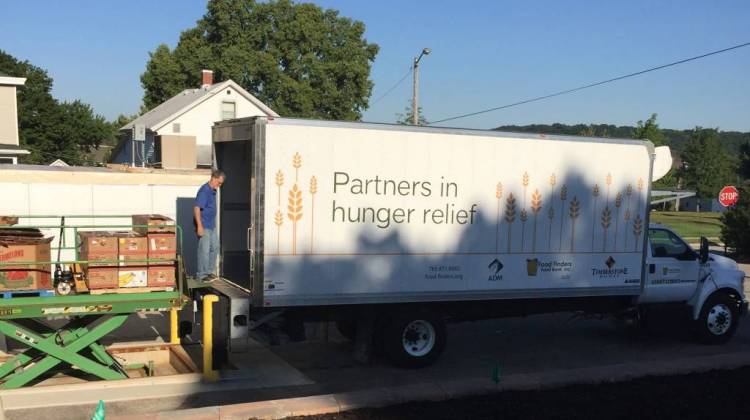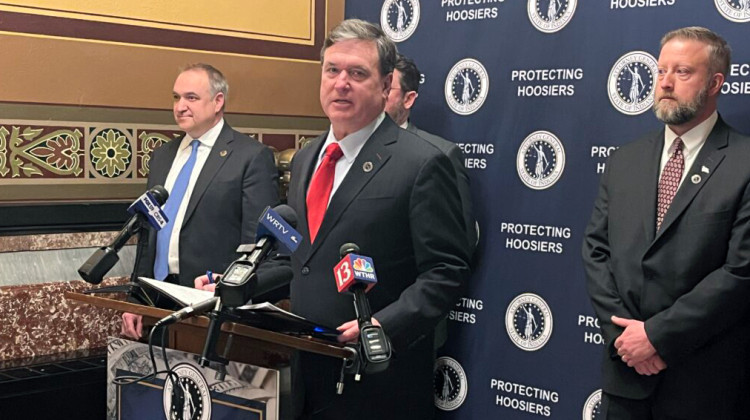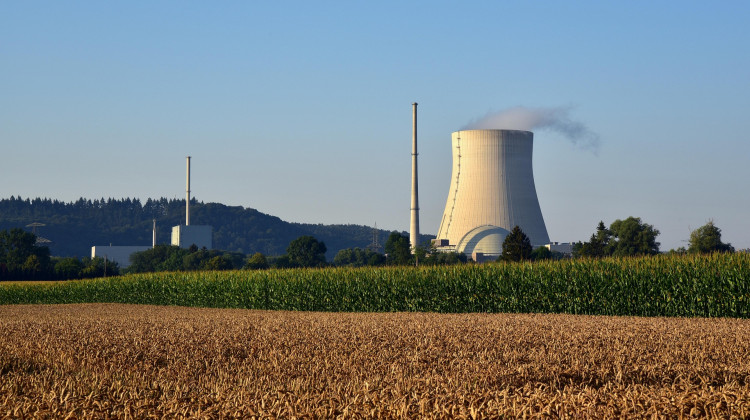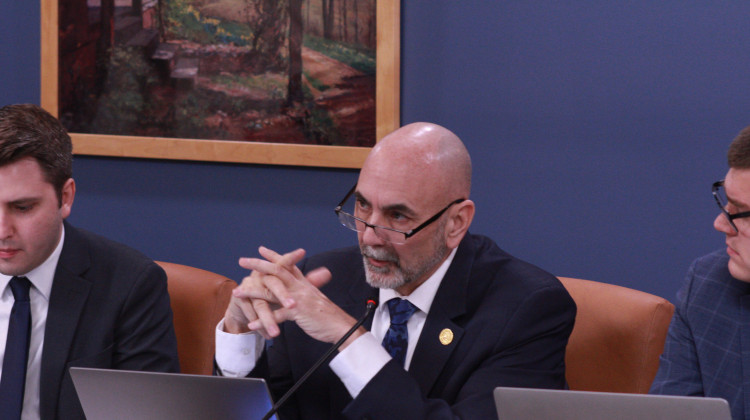Food Finders in Lafayette is good at doing just that: finding food. And CEO Katy Bunder feels she’s ahead of the game when it comes to finding fresh, nutritious options for her clients.
“I always remind myself that low income people want what high income people want – good healthy food,” Bunder says.
She says it’s one of the top requests, but in the past, produce hasn’t always been the best.
“Most of our produce was ugly and past its prime, so not surprisingly our clients were not clamoring for that,” Bunder says.
Healthy food access at food banks and pantries is a relatively new trend but efforts to stock shelves with fresh produce can be difficult.
There’s a better understanding of the relationship between the food that lower income people eat and higher rates of obesity and other poor health outcomes.
“We just recently decided in our pantry here decided not to distribute to our clients, donuts, cupcakes, cakes – all of that stuff, which was a huge shift but you know we got far fewer complaints than we thought and now we use that shelf space for something that’s better,” Bunder says.
In recent years Food Finders increased produce distribution by 103 percent and a new regional produce distribution center run out of Gleaners in Indianapolis helps stock shelves.
But there’s always room for new ideas.
Tamara Benjamin works in diversified farming and food systems at Purdue University. She was at church earlier this year and thought about what a farmer recently told her.
“He was telling me about how they were going to be tilling under these heads of lettuce and so during the sermon I was kind of spacing out and I thought why can’t we do something for Food Finders and food waste,” Benjamin says.
The name Waste Not Want Not came to her almost immediately, but there are still plenty of details to work out. First, she says, is finding a price that works for the food bank and farmers.
“Can we find a price point so maybe they’re aren’t making a lot of money but they aren’t losing money? And can we get money to food finders so they can offer that better price point?” Benjamin says.
Food Finders budgets a few thousands dollars a week for produce but needs a network it can draw on. Plus, Benjamin notes a farmer’s clock is always ticking.
“You know they’re on a schedule, either come out in the next two hours or forget it,” Benjamin says. “And so that’s part of the problem, we don’t have this large urban population to draw on to get gleaners out there on a moment’s notice and most farmers can’t wait.”
Nate Parks owns Silver Thorne Farms with his wife, Emily. They produce up to 500,000 pounds of fruit and vegetables in a season. He’s known for his heirloom tomatoes that are grown in greenhouses.
Most of his crops go to local restaurants and community agriculture programs.
“Freshness health, taste is all relate to vitamins and minerals,” Parks says.
When Parks had a field of romaine mature early, he didn’t have a lot of choices.
“Plowing it under saves us money, we can’t harvest if there’s nowhere to go,” Parks says. “My margins are so incredibly small in making the living we’re trying to make, I can’t afford to pay my people to do that and give it away.”
He says food waste happens when you’re a Hoosier farmer who deals with an unpredictable climate.
“You’re hedging your bets and putting more crop out so you’re safe when you have bad weather incidents and now you have an abundance,” Parks says.
Food Finders has purchased romaine lettuce from Parks through its Waste Not Want Not program.
Katy Bunder says when it connects clients with fresh, local produce and educates them about how delicious it can be: it’s a win.
“If you are disinclined to eat produce but then you taste something that is right off the vine, I think that really incentives you to like and eat more produce,” Bunder says.
The program plans to use Purdue’s extension network to reach more Indiana farmers.
 DONATE
DONATE










 Support WFYI. We can't do it without you.
Support WFYI. We can't do it without you.